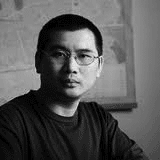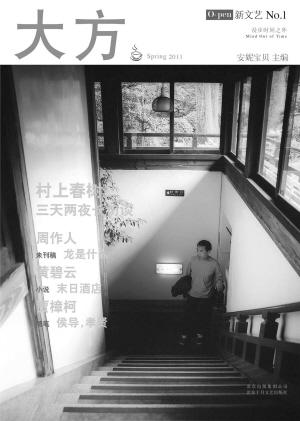6 Dec 2011 | China
The new boss of CCTV, China’s state TV network, Hu Zhanfan, says it like it is.
He believes Chinese journalists should first and foremost be the Chinese government’s mouthpiece and those that don’t play ball won’t go far.
“The first social responsibility and professional ethic of media staff should be understanding their role clearly and be a good mouthpiece.”
Hu, a former newspaper editor, made these comments several months ago, but they only started causing a stir among Chinese web users over the weekend when the original Xinhua News report was posted on Weibo, China’s most popular microblogging site.
 One web user compared Hu to Nazi propaganda chief, Joseph Goebbels.
One web user compared Hu to Nazi propaganda chief, Joseph Goebbels.
Below are pasted some of Hu’s comments from that Xinhua report, translated by the University of Hong Kong’s China Media Project.
“A number of news workers have not defined their own role in terms of the propaganda work of the Party, but rather have defined themselves as journalism professionals, and this is a fundamentally erroneous role definition. Strengthening education in the Marxist View of Journalism and raising the quality and character of news teams is not just very necessary, it is a matter of extreme urgency.
“Concerning social responsibility and professional ethics, editor-in-chief Hu Zhanfan believes that the first and foremost social responsibility [of journalists] is to serve well as a mouthpiece tool. This is the most core content of the Marxist View of Journalism, and it is the most fundamental of principles.”
5 Dec 2011 | Asia and Pacific, China
 China has blocked the website of an iPad magazine called Sun Affairs edited by media rebels Chang Ping and Wen Yunchao. The site has lost its mainland audience.
China has blocked the website of an iPad magazine called Sun Affairs edited by media rebels Chang Ping and Wen Yunchao. The site has lost its mainland audience.
To the government, Chang has form. Earlier this year his controversial commentary got him sacked from the county’s most liberal newspaper company, the Southern Group. Officials are refusing to grant him the visa that would enable him to join a new venture at Sun TV in Hong Kong.
China Media Project (CMP) reported that he was “was offered a position…and filed a visa application under Hong Kong’s Admission Scheme for Mainland Talents and Professionals.” Eight months later, his application has still not been granted. Chang told Southern Media, “I have asked them [the Immigration Department] about it, and they simply say that [my application] is under review.”
The fact that Chang Ping is being denied the opportunity to leave the mainland is an indicator of the worsening environment for journalists, something that Chang Ping has reflected in a blog post, where he writes:
Some people have talked about the loosening up of the media, but when I ask writers to write explaining this… they ask me to delete their stories once they have been used, and forbid me from sending them a cheque, so the stories can’t be traced to them. What a contrast this is to the supposed loosening up… [The media atmosphere] has tightened up.
Read an interview with Chang Ping here
4 Nov 2011 | Asia and Pacific, China

O-pen Magazine was set up in March 2011 by Annie Baby, a popular novelist who got her start on the internet. On 1 November she announced on her Sina microblog that O-pen had been forced to stop publishing. In China, magazines need a national periodical registration number, which enables the government to control magazine output. Like other magazines without a registration number, Annie Baby opted to use ISBN from a publishing house.
Local speculation suggests that shutting down O-pen because it had the wrong registration code was just a pretext. The state has begun a cultural campaign to ‘rectify and purify content’ on TV and other forms of cultural expression is taking place.
Magazine censorship is nothing new — China’s No. 1 blogger Han Han, also a novelist, launched Party in June 2010, it was shut down after just one issue. On November 2, Han Han wrote a blog post that was later taken down by the authorities. However, University of Hong Kong brilliant China Media Project had already posted a translation:
I’ve been involved in this work [of writing] for around 13 years now, and I now understand just how powerless and of no account cultural workers (文化工作者) really are. Owing to a richness of restrictions, people in this line of work are unable to produce anything truly special.
Even though Han Han does not explicitly state it, he is referring to Annie Baby. Han Han compares censorship to castration.
As for myself, while every single essay I write goes through a process of self-censorship and castration, sometimes unavoidably the fashion of my castration is still insufficient to pass muster. This has to do with the level of sensitivity at various publishing houses. For example, my most recent novel has been killed outright, because the protagonist in the novel is surnamed Hu [like China’s president]. So even though I have only written 5,000 characters so far, the publisher assumes there must be political allegory somewhere. By the time I realized I had to avoid this name and changed the character’s surname it was too late.
10 Oct 2011 | Asia and Pacific, China
This Thursday Hong Kong will host the world premiere of Dr. Sun Yat-sen after China abruptly cancelled the opera’s original world premiere at Beijing’s National Center for the Performing Arts.
The opera, commissioned by Opera Hong Kong and the Hong Kong government, was to have had its world premiere on 30 September to commemorate the 100th anniversary of the Chinese revolution.
Sun is a widely revered Chinese revolutionary who helped bring down the Qing dynasty in 1911.
The official explanation for calling off the opera was “logistical reasons”, but media have been wildly speculating as to a range of other possible causes.
The New York Times cited an unnamed agent who works for the composer’s management company as saying that a Chinese government official simply didn’t like the music.
“I guess because maybe it’s not romantic enough, something like that,” the agent said.
The Financial Times suggests that perhaps the words were too politically sensitive. It quotes Sun’s lines in the first scene: “The Qing court is furious, They are turning our country into a prison! But this cage cannot silence oppositional voices … now there are debates with people urging change.” In the wake of the Arab Spring, the government has become ultra-sensitive over protests occurring in China, it muses.
Hong Kong newspaper the South China Morning Post (subscription only) says mainland sources deny it has anything to do with politics or the opera’s subject matter.
“Things like this happen all the time on the mainland,” it quotes a mainland performing arts musician as saying. “Just a [negative] remark from a leader would do it.”
 One web user compared Hu to Nazi propaganda chief, Joseph Goebbels.
One web user compared Hu to Nazi propaganda chief, Joseph Goebbels.

